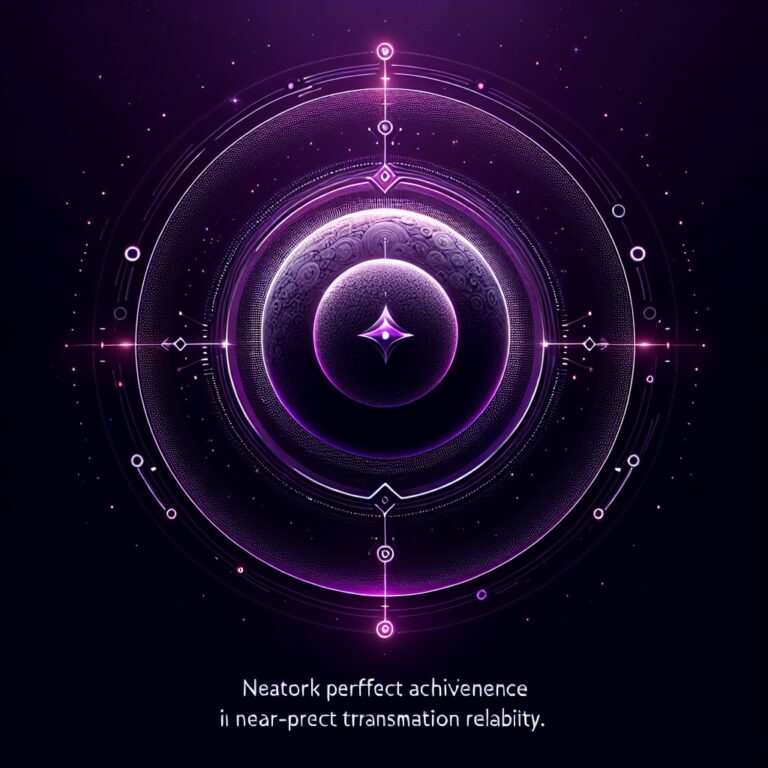Tron, a major player in the blockchain space, has been making headlines with its jaw-dropping reliability this year. As of August 2025, the network stands out for sustaining a near-perfect transaction success rate, a feat rarely achieved in the volatile world of cryptocurrencies. This has positioned Tron as a beacon of stability amid a sea of uncertainty.
Tron’s Stellar Transaction Reliability
In an era where blockchain networks frequently face bottlenecks and technical hitches, Tron is defying the odds. According to Darkfost, a well-regarded market analyst, Tron has maintained a staggering transaction success rate that hovers just shy of 100% throughout 2025. “The consistency is simply unprecedented,” Darkfost noted in a recent report. He attributes this success to the robust infrastructure and strategic upgrades that have been rolled out over the past few years.
The implications of such reliability are profound. Not only does it enhance user trust, but it also makes Tron an attractive option for developers and businesses looking to build decentralized applications (dApps). In a market where downtime can mean significant losses, this performance is a game-changer. But here’s the catch—such success raises questions about scalability and whether Tron can sustain this performance in the long haul. For a comparison, Ethereum has also seen a surge in transaction activity, as detailed in Ethereum Transactions Near All-Time High Amid Surging Stablecoin, Uniswap Activity.
Competitive Edge in a Crowded Market
Tron’s near-flawless performance is not just a technical victory; it’s a strategic masterstroke. In the crowded crypto landscape, where Ethereum and Binance Smart Chain often grab the limelight, Tron has carved out a niche by focusing on transaction efficiency. This focus is paying off, as evidenced by the increasing number of projects choosing Tron over its competitors.
“The choice is clear for many developers,” says Sandra Lee, a blockchain consultant with over a decade of experience. “When you’re dealing with high-volume transactions, reliability isn’t just a nice-to-have—it’s essential. Tron’s performance this year has set a new standard.” Similarly, Ethereum’s transaction volume has reached new heights, driven by factors such as staking and regulatory clarity, as explored in Ethereum Transactions Hit Record High as Staking, SEC Clarity Fuel ETH Rally.
However, it’s not all smooth sailing. Critics point out that while Tron excels in transaction throughput, it still lags behind in terms of innovation compared to Ethereum, which is known for its smart contract capabilities and vibrant developer community. This presents a conundrum for Tron: how to balance its transactional prowess with the need for groundbreaking features.
A Glimpse into Tron’s Evolution
It wasn’t always this way. Tron’s journey has been marked by both triumphs and challenges. Founded in 2017, the platform initially faced skepticism, with critics questioning its long-term viability. Yet, through strategic partnerships and relentless upgrades, Tron has transformed from an underdog to a powerhouse.
The network’s architecture, which emphasizes speed and cost-efficiency, has been pivotal in this evolution. By leveraging a Delegated Proof of Stake (DPoS) consensus mechanism, Tron achieves high throughput without compromising security. This architectural choice appears to be one of the key drivers behind its impressive transaction success rate.
Looking ahead, the stakes are high. With the crypto market’s ever-changing dynamics, sustaining this level of performance will require continuous innovation and adaptation. The question is, can Tron maintain its edge as new competitors emerge and existing ones evolve?
The Road Ahead
Tron’s performance in 2025 has been nothing short of remarkable, but the future is fraught with uncertainty. As the industry evolves, so must Tron. The network’s ongoing efforts to expand its ecosystem and incorporate new features will be crucial in maintaining its competitive edge. But as always, the devil is in the details—execution will be key.
For now, Tron remains a beacon of reliability in a sector notorious for its unpredictability. Whether this success can be sustained remains to be seen, but one thing is clear: Tron has set a new benchmark for transaction reliability, and the rest of the industry is watching closely.
Source
This article is based on: Tron’s Record-Breaking Reliability: Successful Transaction Ratio In 2025 Holding Near 100%
Further Reading
Deepen your understanding with these related articles:
- Ethereum proposes unified fee market to simplify transaction costs
- This Coinbase-Listed Crypto Is Taking Off—With a Little Help From Ethereum: Analysis
- ETH/BTC Nears Key Level: Could Ethereum Outpace Bitcoin Again?

Steve Gregory is a lawyer in the United States who specializes in licensing for cryptocurrency companies and products. Steve began his career as an attorney in 2015 but made the switch to working in cryptocurrency full time shortly after joining the original team at Gemini Trust Company, an early cryptocurrency exchange based in New York City. Steve then joined CEX.io and was able to launch their regulated US-based cryptocurrency. Steve then went on to become the CEO at currency.com when he ran for four years and was able to lead currency.com to being fully acquired in 2025.


